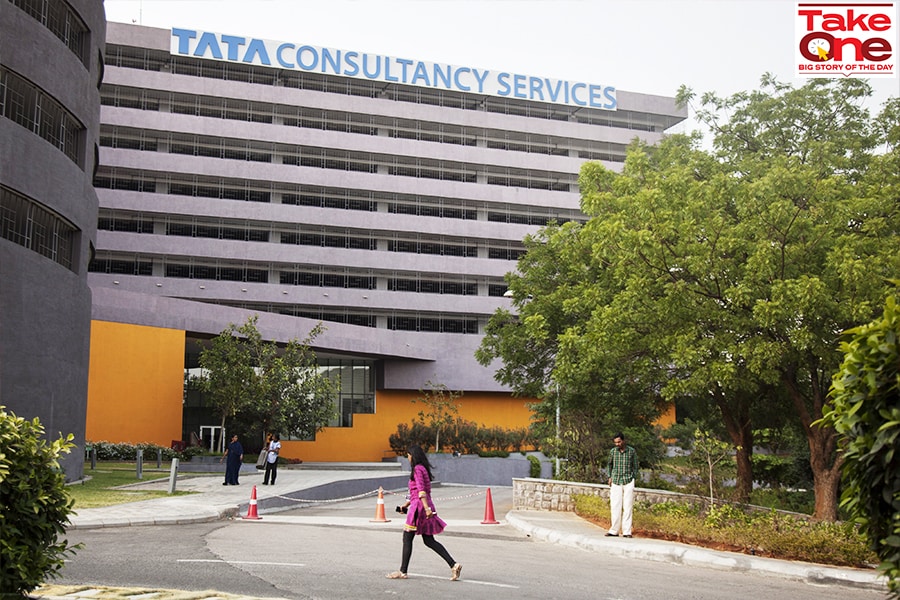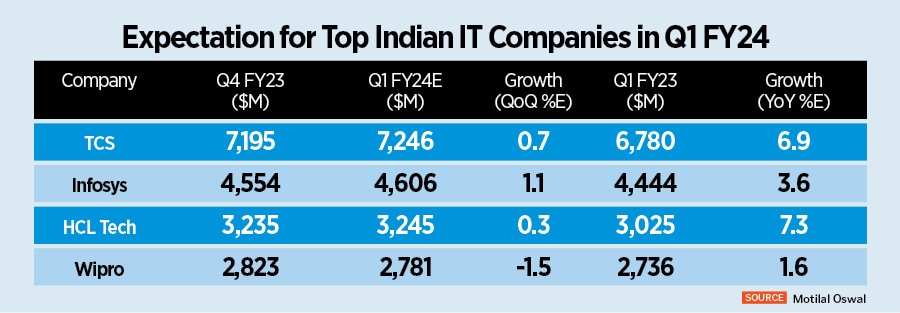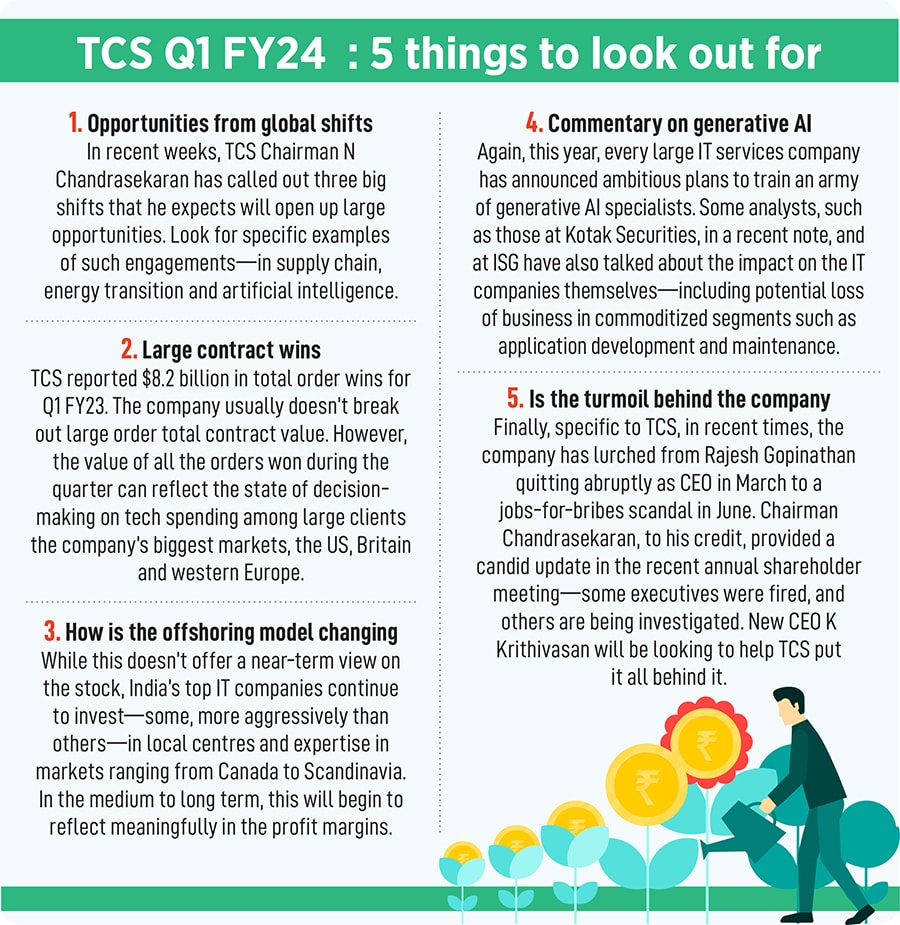
IT services outlook: Strong demand, weak spending story to continue
TCS and HCL Tech will kick off the earnings results season today for the sector's fiscal first quarter
 (File photo) Signage for Tata Consultancy Services Ltd. (TCS) is displayed atop of a building in the Synergy Park campus in Hyderabad, India, on Monday, April 11, 2016. Image: Namas Bhojani/Bloomberg via Getty Images
(File photo) Signage for Tata Consultancy Services Ltd. (TCS) is displayed atop of a building in the Synergy Park campus in Hyderabad, India, on Monday, April 11, 2016. Image: Namas Bhojani/Bloomberg via Getty Images
Tata Consultancy Services and HCL Technologies will kick off the earnings results season for India’s IT services sector today, when they report their fiscal first quarter numbers later today, under the overhang of two consecutive recent cuts in larger rival Accenture’s forecast.
Among the top companies, analysts at the Mumbai brokerage Motilal Oswal expect Infosys to post the most growth from the previous quarter, albeit at a modest 1.1 percent. They expect HCL Technologies to report the highest year-on-year growth at 7.3 percent.
Larger rival Accenture’s recent cuts in its forecast for the rest of its current fiscal that ends in August has strengthened the view that the way forward remains muddy.
Accenture, which follows a September to August fiscal year, started with an 8-11 percent forecast for the year. While it is holding on to the lower end of its forecast, the $62 billion revenue company cut the upper bound by 100 basis points in March and again in June.
It now expects revenue for its fiscal year ending August 31, to increase by 8-9 percent.










